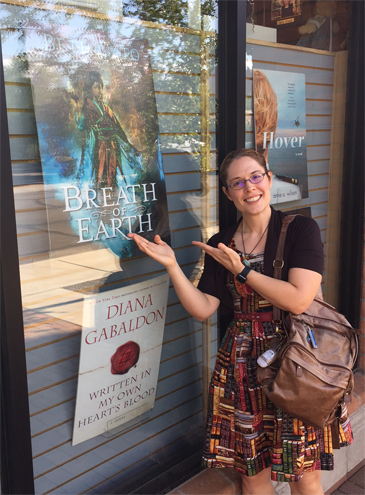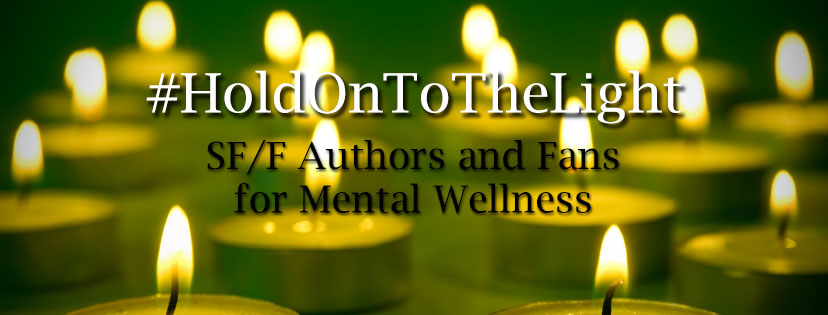My Virtual CoKoCon Schedule for September 4th through 6th
CoKoCon is September 3rd through 6th! The convention is online and totally free. To attend, you must register and use their Discord server. Find out all about that on their website. Please also check out the charity book auction, which will benefit a great local group, the Joshua Tree Feeding Program.
Here’s my final schedule. I say final, but of course, things may change and the internet may choose to be fickle at the worst possible time. Find the full schedule for the weekend here. All times are Pacific time.
Saturday, September 4
2:00pm – 3:00pm Steampunk in the Round
What is it that makes steampunk a lasting trend? We’ll discuss: The evolution of steampunk, how do you see it in a few years? The literary and media side of steampunk. The commercial side of steampunk. The splinter divisions of Steampunk. Q&A with audience.
3:15pm – 4:15pm The Wonderful World of Cheese
Join author Beth Cato and friends as she leads a lively discussion on the world of cheese, from its early history to modern day.
5:45pm – 6:45pm From the Paddock to Pern
Judith Tarr. Tamora Pierce. Robin McKinley. Mercedes Lackey. Our panelists discuss the impact of “horse girl” fantasy.
Sunday, September 5
10:15am – 11:15am Book Discussion: The Calculating Stars
Join avid reader and sometime blogger Michael Senft, and Nebula and Dragon award nominee Beth Cato (The Clockwork Dagger, Breath of Earth) as they discuss Mary Robinette Kowal’s award-winning “Lady Astronaut” alternate history.
2:00pm – 3:00pm Author Self-Care: COVID Edition
Surviving the past year has been an ordeal for everyone. Our authors talk about how COVID affected them, and what they did (and are still doing) to cope with pandemic, lockdown and deadlines.
4:30pm – 5:30pm Writing Speculative Poetry
Join our panelists as they discuss writing speculative poetry, as well as share their own works.
Monday, September 6
2:00pm – 3:00pm From Tabletop to Text and Vice Versa
Whether Dungeons & Dragons or Final Fantasy, our panelists discuss how gaming influenced their writing, and how their writing influences their gaming.
#SFWAPro
Poetry reading and interview on YouTube: “A Purring Cat is a Time Machine”
Todd Sullivan is accumulating a wonderful number of author showcases and interviews on YouTube, and included me in his series on How to Read Poetry. I read my poem “A Purring Cat is a Time Machine,” originally published in Daikaijuzine, and then answer some interview questions on poetry. Enjoy!
Read MoreWords of Wisdom on NaNoWriMo and Star Wars
Are you preparing to take part in NaNoWriMo in November? Striving for 50,000 words in a month is a major undertaking. At the Once and Future Podcast blog, I offer 4 tips to reduce stress during NaNo.
(I’m not taking part in NaNo this year; I wrote a rough draft for Roar of Sky in March and April this year, and I’ll be working on the edits for it this November. I will, however, be doing the Poem-A-Day Challenge.)
In other geeky news, a whole bunch of authors contributed posts to Unbound Worlds on what Star Wars personally means to them. As “Da Wars” was among my first words spoken as a baby, I have very deep thoughts on the subject.
Read MoreAn Agoraphobic’s Guide to the Writing Life — BethCato.com: a #HoldOnToTheLight post
Definition of Agoraphobia, from Merriam-Webster.com:
:abnormal fear of being helpless in a situation from which escape may be difficult or embarrassing that is characterized initially often by panic or anticipatory anxiety and finally by the avoidance of open or public places
Hi. I’m Beth Cato. I’m agoraphobic. It’s part of my sampler pack of mental issues, including depression, generalized anxiety order, and obsessive-compulsive disorder. I’m going to focus on agoraphobia today as it is discussed less often than the others. (If you want to listen to me delve into this topic, it also came up in my interview with Mur Lafferty on the I Should Be Writing Podcast.)
What is agoraphobia?
The Greek roots of the word translate to “fear of the marketplace.” It essentially means a person has a deep fear of leaving home or other select safe zones. It also means a deep fear FOR those safe zones, like heightened anxiety when away because the oven might be left on/house will get broken into/cat will explode. It’s complex and different people experience it in different ways.
Agoraphobia isolates a person, and keeps them isolated. Yeah, it can be embarrassing sometimes. A lot of other people don’t get it or don’t want to make an effort to understand. For me, going out and doing errands isn’t a spontaneous act. It’s one that requires careful planning, and sometimes days or months of preparation.
How can it be treated?
Prescription drugs may help, as they do with other anxiety disorders. Personally, I rely on coping strategies and rigorous planning. Yeah, I still have limits on what I can do, sure, but I’m fairly happy, stable, and I am actually getting out of the house. I’m in a much better place than I was ten, fifteen, twenty years ago.
How does agoraphobia impact a writing career?
How doesn’t it? I want to sell what I write. That means I need to communicate with people and it also means I need to escape the house at times and attend conferences and travel.
Driving is hard for me. I don’t even like being a passenger, especially in big city traffic. I have only had my license for about 10 years now and I am only comfortable driving within a small radius of home and during the daylight. Most bookstores around Phoenix are well beyond my cozy radius and require passage through downtown with its multitudes of lanes and confusing exits and mergers.
 How do you get to these events, then?
How do you get to these events, then?
I try to line up the majority of them with my husband’s schedule and we make a family trip out of it. If I have to make it on my own, I plan around rush hour and otherwise prepare myself as much as possible. I have found Super Shuttle is fantastic to get to and from the airport.
Why do you go to conventions if it’s so hard on you?
Because I love conventions and panels and geeking out over books! You can love something and be terrified about it at the same time. Conventions give me a rare chance to hang out with friends. I soak that in.
I try to stress out in advance and plan out everything as much as I can. That way, I get there and I can enjoy myself.
How do you plan ahead?
This is where my OCD plays a helpful role. Starting months ahead of time, I will study where I will be. How to get from the airport to my hotel and back. What is in walking distance of my hotel and the convention center or other venues. I hit up Yelp and start bookmarking restaurants with food that I like. I study Google Maps and find more restaurants and other cool stuff. Then I go down to Street View, and explore how it looks on the ground (i.e. does it look safe, are there crosswalks, how do I get from here to there, etc). If there are guidebooks available, I buy and study them. If there are Facebook pages about the con, I lurk and take in all the info I can get.
I essentially try to become as conversant as a local. I know routes. I can recommend restaurants based on their popular dishes or friends’ dietary needs. I have Lyft and Uber apps so I can get around (because I sure am not renting a car) or I know when the local transit runs.
Does this usually work?
Most of the time, yes! Mind you, I can’t plan for everything. Sometimes, you gotta lock yourself in a bathroom stall to quietly experience a panic attack, then dry off your face and go out to Adult again.
But when you’re home, you’re fine?
I’m still me. I’m happily neurotic. The internet does make it easier to communicate. I can avoid using the phone–oh, I hate the phone! Except when my agent calls. Her calls are almost always wonderful. Sometimes emails are difficult and I require a few hours or days to work up nerve to reply. I add tasks like that to Habitica, a role-playing game-styled to-do organizer, so that I don’t forget.
Here’s the thing. I have disabilities. I deal with them as best I can. Does it suck sometimes? Sure. But am I happy? Most of the time, yes! Ten years ago, I would have NEVER imagined I would be traveling by myself all over the country and being as active as I am on social media. I never would have written a post as personal as this, either, but I sincerely hope it helps other people out there.
About the campaign:
#HoldOnToTheLight is a blog campaign encompassing blog posts by fantasy and science fiction authors around the world in an effort to raise awareness around treatment for depression, suicide prevention, domestic violence intervention, PTSD initiatives, bullying prevention and other mental health-related issues. We believe fandom should be supportive, welcoming and inclusive, in the long tradition of fandom taking care of its own. We encourage readers and fans to seek the help they or their loved ones need without shame or embarrassment.
Please consider donating to or volunteering for organizations dedicated to treatment and prevention such as: American Foundation for Suicide Prevention, Hope for the Warriors (PTSD), National Alliance on Mental Illness (NAMI), Canadian Mental Health Association, MIND (UK), SANE (UK), BeyondBlue (Australia), To Write Love On Her Arms (TWLOHA) and the National Suicide Prevention Hotline.
To find out more about #HoldOnToTheLight, find a list of participating authors and blog posts, or reach a media contact, go to http://www.HoldOnToTheLight.com and join us on Facebook.
#SFWAPro
Read More
Comprehensive Book Review of Handbook for Mortals
If you follow publishing news, you likely recognize the title Handbook for Mortals by one Lani Sarem. It has been a subject of morbid fascination since it infiltrated the New York Times Bestseller list out of the blue. Some crack reporting by YA Twitter painted a picture that was stranger than fiction (seriously, read that link if you have not). For all that this was a so-called bestseller, almost no one had actually seen the book, much less read it. The few excerpts that began to float around Twitter showed the novel to be of… dubious quality.
I wanted to read it for myself.
The publisher obliged me through the galley site NetGalley.
Here, for your edification, is my review. It was not easy to write. I don’t like doing negative reviews, but I wanted to present a comprehensive analysis of the book that created so much fuss and furor.
 Handbook for Mortals by Lani Sarem
Handbook for Mortals by Lani Sarem
My rating: 1 of 5 stars
I received this ebook through the publisher via Netgalley. As a published author myself, I am well aware of the way that author Lani Sarem and her team manipulated the New York Times list. I also know that the Goodreads ratings for the book consist of mostly one-star ratings due to the book’s reputation and the sample available on Amazon.
I don’t rate or review any book unless I finish it. I wanted to judge Handbook with as much fairness as I could, even knowing its history, so I endeavored to read the entire thing. I finished it.
If this had been any other book, I would have declared it Did Not Finish (DNF) in the first few pages.
Handbook reminds me of my first novel efforts, the ones I trunked and will forever more keep trunked. Because of that, I sympathize with the author to a degree. I wish she had had other experienced authors around her to offer honest feedback–or maybe she did, and she ignored their feedback to stay true to her vision. I did that with my first novel attempts, too.
The book reads like a non-reader’s mistaken assumptions of what YA is, though this book is not YA (the heroine is about twenty-five). For a proclaimed fantasy book, magic is barely present (and very little of it actually done by the heroine), and doesn’t make sense. It’s… kind of like a romance, but with no chemistry. The entire middle of the book consists of dating scenes interspersed with clothes shopping.
The first few pages show an ignorance of novels and how they are formatted at a basic level, as it actually has a foreword introducing the author. An intro like this is included for anthologies or collections, not for a debut book. I don’t know who the author is and her movie fandom creds aren’t relevant. The book needs to sell itself.
As Handbook begins at chapter 0, we meet Zade as she argues with her mother and departs Tennessee for her new job in Las Vegas. The narrative is overwritten–again, a common flaw in early novels efforts and rough drafts, period–and the paragraphs are dense, with the dialogue often buried. Zade’s actions here are the only time in the book that she shows agency.
Agency means the character instigates the plot. She/he makes the decisions and carries the book, rather than doing what author-god decrees. Agency within a plot is a tricky thing to master; honestly, my agent and editor still ding me on this during revision stages.
But this point of criticism leads to another issue: there is no plot in Handbook. She goes to Vegas and joins an illusionist’s show, and starts going on a lot of dates with Mac and Jackson, though all men find her to be incredibly hot and almost all women loathe her. This is explained at one point as a side effect of Zade’s immense magical power. At one point, some other magic user attacks her, and makes an odd cameo appearance later; the ending implies a second book is supposed to explain this person, but it has zero bearing on anything in this book.
This book is about dating. And shopping. But for a book that tries to play up the love triangle angle, ala Twilight, there is no triangle. Mac has all of the emphasis and character development–actually, he’s the only character who has an arc and develops in any way, and he’s the only one who acts at the climax. He has many of his own scenes shown in italics (though the use of italics is inconsistent and confusing, as some other characters’ POVs are seen through it sometimes). The other character, Jackson, is a musician and good-looking, and has the perk of actually believing in the abilities of tarot readings (one of Zade’s skills), but it’s pretty clear he has no chance with Zade.
As for the romantic dialogue, it’s… George Lucas-esque. That goes back to that matter of agency. As all men love and want Zade, she doesn’t need to make any effort to win over Mac or Jackson.
Zade had potential to be an interesting character. The book only expresses vague ideas of what her magic is actually like and there is zero growth in her abilities–the kind of thing an actual fantasy book needs. Zade is perfect in every way, a cliché Mary Sue (again, a new author trait). Everyone thinks she’s hot. Compliments on her hair are a regular theme (it reads like a Sally Beauty Supply ad at a few points, quite literally). She can also play guitar and sing, and she loves “crotch rockets” just like Mac. And as the ending of the book shows, she is morally bankrupt.
I suppose I should get to the ending.
Most books use an ending to show how the hero/heroine has grown throughout the book. It’s an opportunity for a grand show of powers, a confrontation with a villain, etc. But this book has no character growth, and while it has a few unpleasant people, there is no villain.
Instead, Zade tries to pull off a grand illusion during the Vegas show that utilizes “dangerous magic.” She uses Mac as her anchor for this magic, but he’s mad at her, so he steps outside to smoke. (Yes, there are several points like this that make no sense–he could step out for a phone call, or be sick, or go on vacation, etc). Cue her magic going awry. The show ends, and she goes off stage, falls unconscious, and starts bleeding everywhere. At the hospital, the doctor says Zade is internally bleeding and will quickly die.
Zade is rushed back to Tennessee to her mother’s advanced magical care, where, as Zade is bleeding to death, her estranged parents reunite and casually tell Mac the story of how they met. There is zero tension throughout this long section. Zade’s loved ones are literally at the kitchen table, drinking tea, and reminiscing about the late 1970s as Zade bleeds out in the next room.
How do we know this? That goes to the morally bankrupt part: Zade has ripped memories of all these events from her parents, Mac, and everyone who witnessed her collapse in Vegas. The very end of the book has some vague mention of her getting permission from those closest to her, but she obviously couldn’t get this from everyone, as her magical skills are a big secret.
So yeah. She thieved memories from almost everyone she knows, and also rifled through her parents’ thoughts when they were young and horny, which has another level of violation and squick. There is absolutely no moral consideration of these actions.
Also note that Zade falls unconscious at 67% through the ebook. She wakes up at 91%. The climax, such as it is, consists of Mac plunging a dagger-that’s-really-like-an-EpiPen (that’s how the book explains it) into her heart.
She recovers, returns to Vegas where everyone greets her with a surprise party (the proper welcome for someone who nearly died), and her estranged parents remarry. The book ends with the promise (threat?) of a sequel to come that will explain the weird magical girl who tried to blast Zade at the mall.
I wanted Handbook to be worthwhile of the fuss and effort that went into getting it on the NYT list. It’s not.
#SFWAPro
Read MoreNew Publications & Podcasts to Start September
It’s Labor Day already? How did that happen? I fell behind on website updates, as in often the case with book release time, but my Bibliography and the Blood of Earth Trilogy media page are now current. Below are some highlights from August… and two chances to enter to win my books over on Goodreads, including a galley of my collection, out in two months!
Goodreads Book Giveaway
Red Dust and Dancing Horses
by Beth Cato
Giveaway ends September 10, 2017.
See the giveaway details
at Goodreads.
Goodreads Book Giveaway
The Clockwork Crown
by Beth Cato
Giveaway ends September 10, 2017.
See the giveaway details
at Goodreads.
 New Story:
New Story:
“Excerpts from the 100-day Food Diary of Angela Meyer,” Nature
Podcasts:
– O&F Podcast, Ep. 161: Once & Future Live Megacast, Gen Con 2017: Beth Cato & Mercedes Lackey
– The Two Gay Geeks podcast 127: interview with Beth Cato
– Unscrambled Authors Episode 32: Beth Cato
Call of Fire Guest Blogs:
– Scalzi’s Big Idea: Beth Cato’s Call of Fire
– My Favorite Bit: Call of Fire
– Historical Research Tips from Beth Cato
– Author Beth Cato on Writing Her First Sex Scene
– Page 69 Test: Call of Fire
Other Guest Blogs:
– At the Nature Blog: The Story Behind the Story of ‘Excerpts from the 100 day Food Diary of Angela Meyer’
– Tor.com Feature: Five Books Set in the Pacific Northwest
#SFWAPro
Read More








